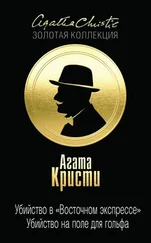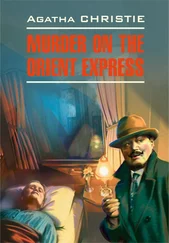grange [ɡreɪnʤ], dead [ded], legacy [ˈleɡǝsɪ]
That's why she took the post with Miss Rose at The Grange. It's three miles out of Andover, dead in the country. He couldn't get at her there so well. When Miss Rose died, she left Mrs. Ascher a small legacy, and the woman started this tobacco and newsagent business — quite a tiny place — just cheap cigarettes and a few newspapers — that sort of thing. She just about managed to keep going."
"Ascher used to come round (Эшер, бывало, появлялся; to come round — обходить; заходить) and abuse her now and again (и оскорблял ее снова и снова; to abuse — оскорблять; ругать; мучить) and she used to give him a bit (а она, бывало, давала ему немного /денег/) to get rid of him (чтобы избавиться от него) . She allowed him fifteen shillings [5] Shilling — шиллинг — (англ. серебряная монета = 1/20 фунта стерлингов = 12 пенсам).
a week regular (она регулярно выдавала ему пятнадцать шиллингов в неделю) ."
"Had they any children?" asked Poirot (у них были дети? — спросил Пуаро) .
"No. There's a niece (есть племянница) . She's in service near Overton (она работает служанкой рядом с Овертоном) . Very superior (очень надменная; super) , steady young woman (уравновешенная молодая женщина; steady — устойчивый; твердый; уравновешенный) ."
"And you say this man Ascher used to threaten his wife (и вы говорите, этот человек, Эшер, бывало, угрожал своей жене) ?"
"That's right (так точно) . He was a terror (на него не было управы: «он был ужасом») when he was in drink (когда выпьет) — cursing (сквернословил) and swearing (и ругался) that he'd bash her head in (что он пробил бы ей голову) . She had a hard time (у нее были трудные времена) , did Mrs. Ascher (у миссис Эшер) ."
"What age of woman was she (какого возраста женщиной она была) ?"
"Close on sixty (ближе к шестидесяти) — respectable and hardworking (почтенная и трудолюбивая; to respect — уважать) ."
shilling [ˈʃɪlɪŋ], niece [ni:s], superior [sju:ˈpɪǝrɪǝ]
"Ascher used to come round and abuse her now and again and she used to give him a bit to get rid of him. She allowed him fifteen shillings a week regular."
"Had they any children?" asked Poirot.
"No. There's a niece. She's in service near Overton. Very superior, steady young woman."
"And you say this man Ascher used to threaten his wife?"
"That's right. He was a terror when he was in drink — cursing and swearing that he'd bash her head in. She had a hard time, did Mrs. Ascher."
"What age of woman was she?"
"Close on sixty — respectable and hardworking."
Poirot said gravely (Пуаро сказал серьезно) : "It is your opinion, inspector (по вашему мнению: «это ваше мнение», инспектор) , that this man Ascher committed the crime (что, этот человек, Эшер, совершил преступление) ?"
The inspector coughed cautiously (инспектор осторожно кашлянул; caution — внимательность, осторожность) . "It's a bit early to say that, Mr. Poirot (это немного рано говорить так, мистер Пуаро) , but I'd like to hear Franz Ascher's own account (но мне бы хотелось услышать собственное объяснение Франца Эшера; account — счет; оценка; мнение) of how he spent yesterday evening (как он провел вчерашний вечер; to spend — проводить; тратить) . If he can give a satisfactory account of himself (если он сможет дать удовлетворительный ответ о себе; to satisfy — удовлетворять) , well and good (тем лучше) — if not (если нет) —"
His pause was a pregnant one (его пауза была полна смысла; pregnant — беременная; чреватая; содержательная) .
"Nothing was missing from the shop (ничего не пропало из магазина) ?"
"Nothing (ничего) . Money in the till quite undisturbed (деньги в кассе совсем не тронуты; to disturb — беспокоить; волновать; приводить в беспорядок) . No signs of robbery (нет признаков ограбления; to rob — грабить) ."
cough [kɔf], cautiously [ˈkɔ:ʃ(ǝ)slɪ], satisfactory [ˌsætɪsˈfæktǝrɪ]
Poirot said gravely: "It is your opinion, inspector, that this man Ascher committed the crime?"
The inspector coughed cautiously. "It's a bit early to say that, Mr. Poirot, but I'd like to hear Franz Ascher's own account of how he spent yesterday evening. If he can give a satisfactory account of himself, well and good — if not —"
His pause was a pregnant one.
"Nothing was missing from the shop?"
"Nothing. Money in the till quite undisturbed. No signs of robbery."
"You think (вы думаете) that this man Ascher came into the shop drunk (что этот человек, Эшер, пришел в магазин пьяным) , started abusing his wife (начал оскорблять свою жену) and finally struck her down (и в конце убил ее) ?"
"It seems the most likely solution (это кажется наиболее вероятным решением) . But I must confess, sir (но я должен признаться, сэр) , I'd like to have another look at that very odd letter (мне бы хотелось еще раз взглянуть на то очень странное письмо) you received (/которое/ вы получили) . I was wondering (мне было интересно) if it was just possible (возможно ли это) that it came from this man Ascher (чтобы оно пришло от этого человека, Эшера) ."
Poirot handed over the letter (Пуаро передал письмо) and the inspector read it with a frown (и инспектор прочитал его, нахмурившись: «с хмурым /видом/») .
"It doesn't read like Ascher," he said at last (это не похоже на Эшера: «это не читается как Ашер», — он сказал наконец) . "I doubt (я сомневаюсь) if Ascher would use the term 'our' British police (пользовался ли Эшер термином «наша» британская полиция) — not unless he was trying to be extra cunning (только если он не пытался быть особенно хитрым) — and I doubt (и я сомневаюсь) if he's got the wits for that (есть ли у него достаточно мозгов для этого; wits — ум, разум; остроумие; сообразительность) . Then the man's a wreck (ведь этот человек — развалина; wreck — остов разбитого судна; остатки кораблекрушения) — all to pieces (весь /развалившийся/ на кусочки) . His hand's too shaky to print letters clearly like this (его руки слишком трясутся, чтобы напечатать буквы такими четкими, как эти; to shake — трястись) . It's good quality notepaper and ink, too (это к тому же хорошая качественная писчая бумага и чернила) . It's odd (это странно) that the letter should mention the 21 stof the month (что письмо упоминает двадцать первое /число/ этого месяца) . Of course it might be a coincidence (конечно, это может быть совпадением) .''
Читать дальше

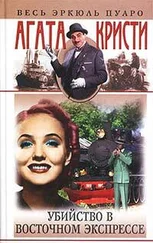
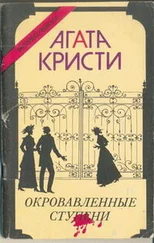
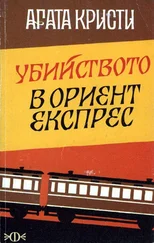
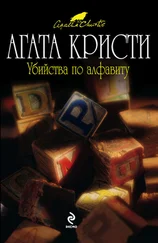
![Агата Кристи - Убийства по алфавиту [litres]](/books/397046/agata-kristi-ubijstva-po-alfavitu-litres-thumb.webp)
